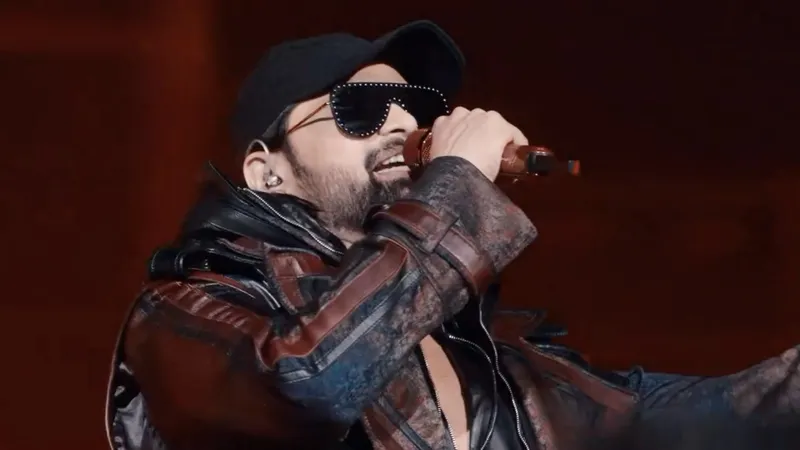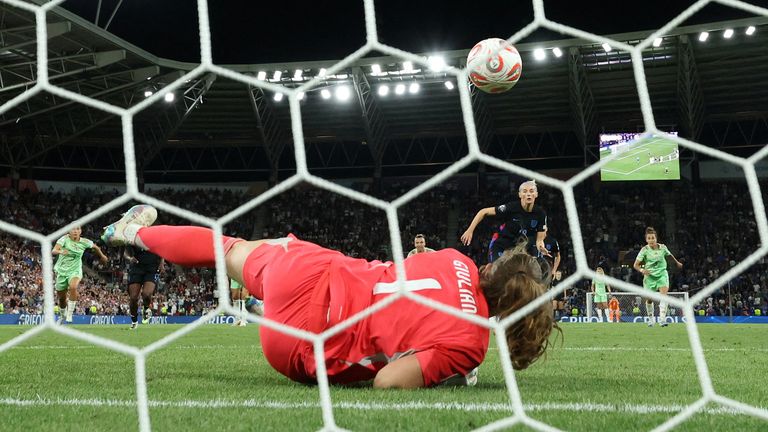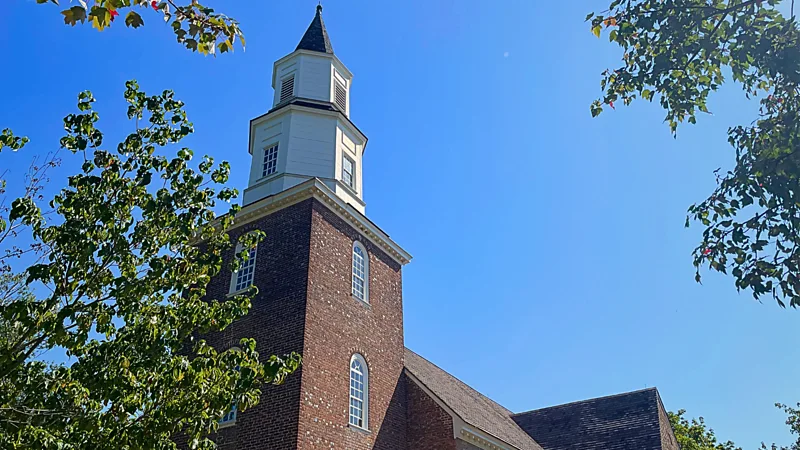Israel says it's carried out 'pre-emptive' airstrikes in Lebanon - as Hezbollah fires back
Israel has carried out "pre-emptive" strikes against Hezbollah, while the militant group says it has completed the "first phase" of an attack on 11 Israeli military sites.

Israel has launched a wave of "pre-emptive" airstrikes in southern Lebanon against Hezbollah - as the militant group said it had fired drones and hundreds of rockets.
Hezbollah said its attack on Israeli military positions was an initial response to the killing of one of its founders and top commanders in an Israeli airstrike in Beirut last month.
Warning sirens sounded in northern Israel and explosions were heard as the military's Iron Dome aerial defence system shot down missiles from southern Lebanon.
Flights to and from Tel Aviv's Ben Gurion airport were suspended, although the Israel Defence Forces (IDF) said they were safe to restart after about an hour. Israel's Home Front Command raised the alert level in northern Israel and encouraged people to stay near bomb shelters.
A few hours after the initial Israeli strikes, the IDF said it had struck more Hezbollah launchers in several areas of southern Lebanon "to remove threats". It also said it identified a terrorist cell operating in Khiam in southern Lebanon.
Sunday's attacks came as Egypt hosts a new round of talks aimed at ending Israel's war against Hamas, now in its 11th month. An Israeli delegation is still set to attend, the Israeli army radio has reported, citing officials.
In a statement on Sunday, the IDF accused Hezbollah of "preparing to file missiles and rockets toward Israeli territory".
"We conducted pre-emptive strikes after seeing Hezbollah starting to get ready to attack us. We will do all it takes to protect Israel, " said Israeli military spokesman Rear Admiral Daniel Hagari.
Israeli Prime Minister Benjamin Netanyahu said the IDF had "been taking strong action to foil the threats" and "eliminated thousands of rockets that were aimed at northern Israel".
Speaking at a cabinet meeting, he said the IDF was "thwarting many other threats and is taking very strong action - both defensively and offensively".
He continued: "We are determined to do everything to defend our country, to return the residents of the north securely to their homes and to continue upholding a simple rule: Whoever harms us - we will harm them."
Hezbollah issued a statement saying it has completed the "first phase" of its attack, after reportedly launching 320 Katyusha rockets and hitting 11 Israeli military sites, bases and barracks.
"We restored the rules of deterrence," a Hezbollah official told Sky News. "They attacked Lebanon in depth and we did the same... the fault lies with the one who started."
The Iran-backed fighting group - designated a terrorist organisation by several countries, including the UK - said its attacks were in retaliation for the death of top commander Fuad Shukr, who was killed in a strike in Beirut's southern suburbs in July.
Mr Netanyahu previously described Shukr as "one of the most wanted terrorists in the world".
Lebanon's Hezbollah chief Sayyed Hassan Nasrallah is set to address the latest developments in a televised speech at 4pm UK time, the group has said.
Meanwhile, the Lebanese National News Agency described "enemy warplanes" causing "severe damage to property, crops, and infrastructure, especially the electricity and water networks".
Lebanon's Health Ministry has said two people were killed and another two injured in the strikes in southern Lebanon, the AP reports. Separately, a fighter for the Amal group, which is allied with Hezbollah, was killed in a strike on a car, Amal said.
The escalation was predicted according to an assessment of Israeli intelligence by the country's best-connected security correspondents. Hezbollah has said it will halt the fighting if there is a ceasefire in Gaza.
Israel had been expecting a response to the killing of senior Hezbollah commander Fuad Shukr and its military has been on high alert for the last three and a half weeks.
To have carried out pre-emptive strikes on a wave of Hezbollah missile launchers, reportedly primed to fire at 5am, suggests extremely good intelligence that might have prevented considerable damage to Israel.
Hezbollah has said it targeted Israeli military bases and that the first wave of its response is over.
When the next wave comes is unclear, but this is an extremely dangerous moment for the region. Keeping Israel guessing as to when the next attacks will come, is all part of the psychological warfare.
The US, which has been kept closely informed of developments, has already positioned its military hardware around the region in anticipation of this moment.
With high-level delegations due to meet in Cairo later today to discuss a possible Gaza ceasefire, Washington will be urging Israel not to retaliate hard just now, in fear the situation will spiral out of control and in the hope progress can be made at those talks.
Few though, believe a ceasefire in Gaza is close.
But if Hezbollah is expected to launch further major assaults on Israel, there will be loud voices within the Israeli government and security establishment urging prime minister Benjamin Netanyahu to take offensive action now, rather than waiting to see what comes next.
Mr Netanyahu held a meeting early on Sunday with members of his cabinet about the attacks.
US defence secretary Lloyd Austin has also spoken with his Israeli counterpart Yoav Gallant.
The Pentagon said he "reaffirmed the United States' ironclad commitment to Israel's defence against any attacks by Iran and its regional partners and proxies".
"There is a grave risk of wider escalation and this is a significant and another dangerous moment in this conflict, which has now been running for almost a year. Where it goes next is really very difficult to read at the moment.
Certainly, officials here in Lebanon are saying that this is the most violent series of strikes since this conflict began in Lebanon. The extent of the damage, we don't really know at the moment - but they are saying that there has been damage to infrastructure, water and electricity.
"What will Hezbollah do next, if anything? They are describing this as the first phase of their planned retaliation. Will there be a second phase, or is this part of the strategy that Hezbollah leader Hassan Nasrallah has talked about a number of times - psychological warfare, to try to keep the enemy guessing on what they may or may not do next?
"But clearly, this is another inflection point. It is a major escalation. Will it spiral into something else? The spectre hanging over Lebanon and Israel is what happened in 2006, when Hezbollah and Israel went toe to toe in a full-scale war. Are we going to see a replay of those events now?
"Clearly, since 7 October, the red lines that were established after 2006 have not just degraded, they've been totally destroyed. So there will have to be a new deterrent reestablished. The question is: is that something that can be achieved through diplomacy, or will it only be achieved through violence?
"There are certainly ministers who are pushing for Israel to try and redraw those red lines militarily. The defence minister has said operations in Gaza are pretty much becoming under control. They'll obviously keep their forces there. They will continue to do operations. But the IDF will start its pivot towards the northern border.
"From Israel's perspective, as a result of 7 October and the fighting that's been going on on its northern border, they have lost sovereignty over large tracts of the country as citizens have been displaced. Israel can't put up with that long-term.
"Obviously, as far as the international community is concerned, they would like to see a diplomatic solution. But we've had an enormous amount of diplomacy over the last few months and the trade of cross-border fire between Israel and Hezbollah continues. This morning, it get much worse. The worry is that this now spirals, it escalates into a wider regional conflagration. That is the big danger."
A spokesman for the National Security Council, Sean Savett, said President Joe Biden is "closely monitoring events".
The UN has described the situation as "worrying" and called on all sides to cease fire.
-SKY NEWS







